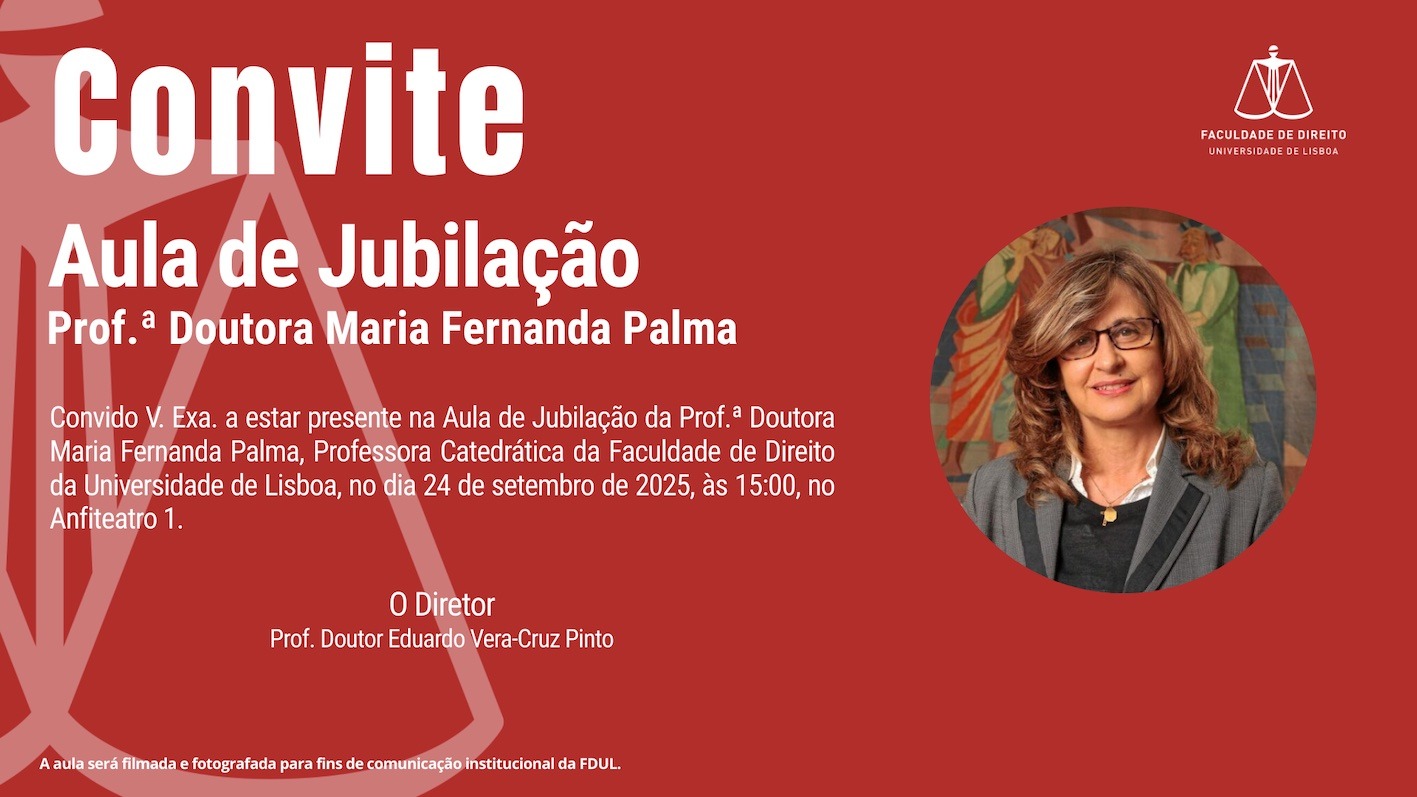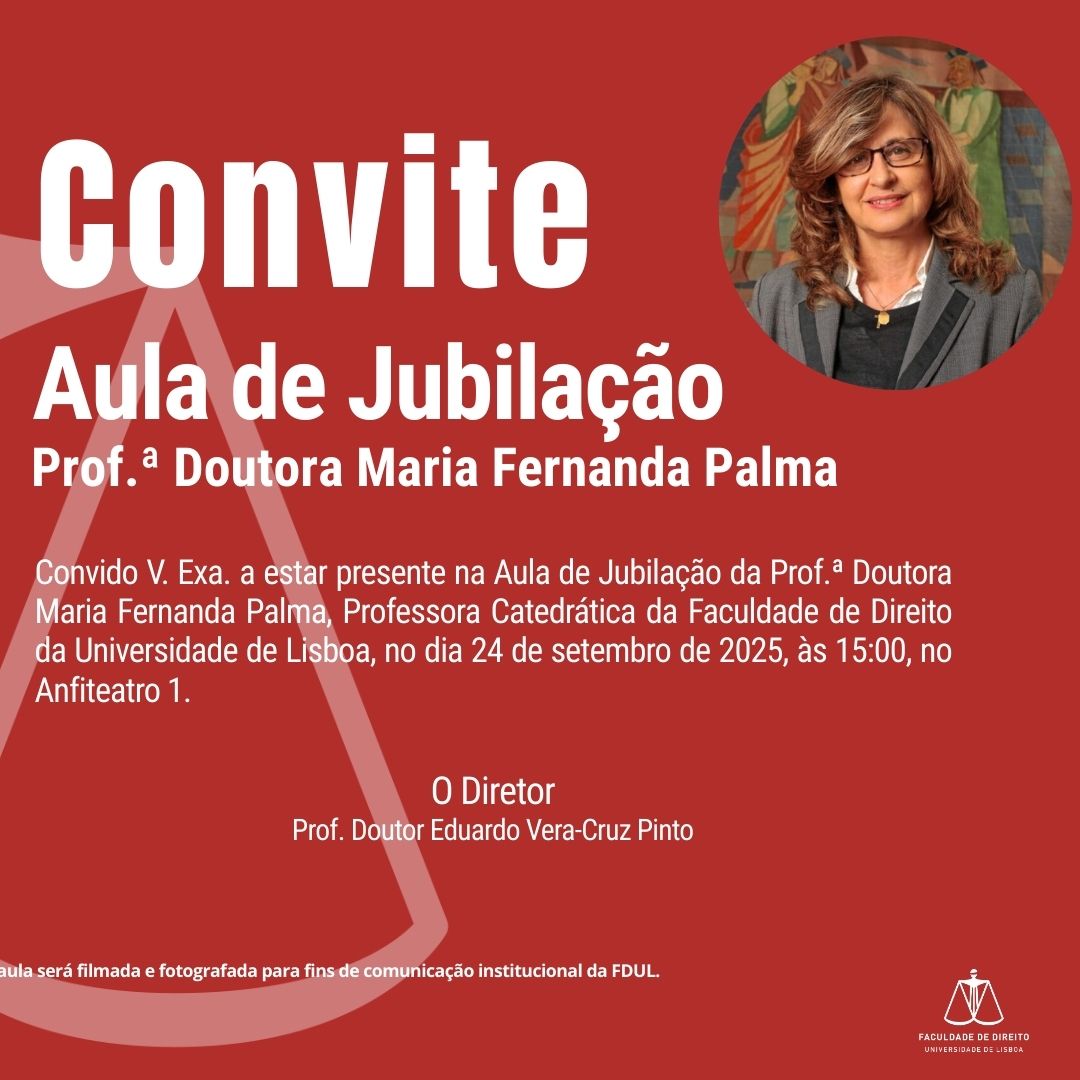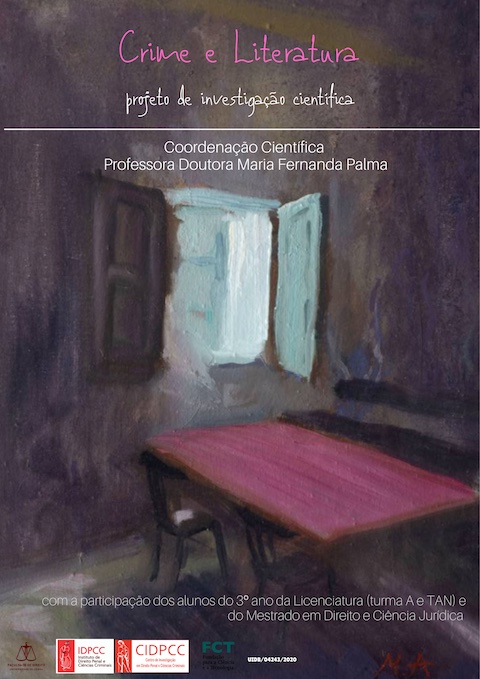
Archives: Destaques
CIDPCC receives visit from Shaanxi Provincial People’s Procuratorate
On July, 17th, CIDPCC received a visit from a delegation of the Shaanxi Provincial People’s Procuratorate (People’s Republic of China). The delegation’s interest focused on issues related to the procedural regime of confession and the prevention and regulation of juvenile delinquency. The meeting was attended by the Coordinator of CIDPCC, Maria Fernanda Palma, and researchers Jorge Silva Santos, Ricardo Tavares da Silva, António Brito Neves, and Nuno Igreja de Matos.


IDPCC pays tribute to the late Pope Francis, evoking his constant concern for those sentenced to prison
IDPCC pays tribute to the late Pope Francis, evoking his constant concern for those sentenced to prison, whom he visited very weakened, days before his death, in a Rome prison. An inspiring gesture of a humanistic understanding of the purpose of sentences and very significant for the thought on criminal law to which we dedicate ourselves at IDPCC.
Opening session: Separation of Powers in the Rule of Law and the Reform of the Criminal Procedure Code
On April 22nd, at 10 am, the opening session of the postgraduate course “The separation of powers in the democratic rule of law and the reform of the Criminal Procedure” took place at the Faculty of Law of the University of Lisbon.
Lecturers of the session open to the public were:
- Maria Fernanda Palma (President of the IDPCC) – Presentation
- Fernanda de Almeida Pinheiro (President of the Portuguese Bar Association) – Lawyers and the reform of the Criminal Procedure
- José João Abrantes (President of the Constitutional Court) – The role of the Constitutional Court in the reform of the Criminal Procedure
- António Brito Neves (IDPCC) – Constitutional jurisprudence and the Criminal Procedure
- Rui Pereira (University Professor and Former Judge of the Constitutional Court) – Constitutional history and reform
New publication
CIDPCC researcher Ricardo Tavares da Silva releases his new publication “Interpretação Artificial: Sobre a Possibilidade de os Novos Sistemas de Inteligência Artificial Fazerem Interpretação Jurídica” (“Artificial Interpretation: On the Possibility of Legal Interpretation by New Systems of Artificial Intelligence”), at the Almedina bookstore in Lisbon (Atrium Saldanha), on February 26.
This publication is part of the Centre’s resaearch project PANDORA – Criminal law and artificial intelligence.
The Body and Criminal Law
CIDPCC organises the conference “The body and criminal law”, on April 8, at 2 pm, in the Auditorium of the University of Lisbon School of Law, within the scope of the research project TERPSÍCORE.
Programme:
- Body in criminal behaviour (Maria Fernanda Palma – CIDPCC/FDUL)
- Corpoemcadeia (conference-performance, Catarina Câmara – Cia. Olga Roriz/CIDPCC)
- The body that thinks (Catarina Pombo Nabais – FCUL)
- The body, power and politics (Nuno Nabais – CIDPCC/FLUL)
- The body as an extension of the mind (Ricardo Tavares da Silva – CIDPCC/FDUL)
- Body and punishment (Margarida Seixas – CIDPCC/FDUL)
Free admission, registration is required:
In memoriam: Claus Roxin
IDPCC is deeply saddened by the loss of Claus Roxin, one of the most brilliant and creative penalists who crossed the 20th and 21st centuries, renewing penal thought, both through the relationship with criminal policy and through the way in which problematic thinking is articulated with systematic thinking. His theses on various difficult issues such as criminal participation have influenced the doctrine and jurisprudence of a multiplicity of countries, not only European, but from all continents. He was a friend of the Portuguese University, with many disciples and admirers, having been an honorary doctor in several faculties and having given an unforgettable lecture at FDUL. His ideas have always sustained a deep civil libertarian tendency, maintaining and renewing the consistent vision of criminal law as a law for the protection of the dignity of the human person and the values of freedom.
We publish here an excerpt from the laudation on the occasion of his honorary doctorate at Universidade Lusíada (Lisbon), in which the academic community of Portuguese penalists of all faculties and other nationalities paid tribute to him.
The most heartfelt condolences are addressed to the family.
Alice in Wonderland and the Question of Truth
CIDPCC organizes the conference “Alice in Wonderland and the Question of Truth” by Prof. Olga Pombo (Faculty of Sciences of University of Lisbon), on March 14th, 3 pm, at the Faculty of Law.
Symposium on criminal law at the Supreme Court of Justice
Criminal reactions, criminal participation and the criminal responsibility of the legal person will be the topics under discussion at the Symposium on Criminal Law organized by the Supreme Court of Justice (STJ) on March 12th.
Prof. Maria Fernanda Palma participates in the panel on “Criminal Participation – Authorship and Complicity”.
More information (incl. registration and programme) are available at the event’s website (PT only).
Separation of Powers in the Rule of Law and the Reform of the Criminal Procedure Code
New Postgraduation Course
Scientific coordination:
Maria Fernanda Palma
António Brito Neves
Dates:
April 22 – May 20, 2025
>>> More information
Crime & Literature: classification of submitted papers
The papers presented within the scope of the scientific research project “Crime and Literature” (scientific coordination: Prof. Dr. Maria Fernanda Palma), academic year 2023/2024, for students of the Criminal Law classes (classes A and evening classes of the degree [3rd year] and Master’s degree) have been classified as follows:
- 1st: “Macbeth: Sobre o Som, Fúria e Culpa – Uma Análise Jurídico-Penal” – Rute Dionísio
- 2nd: “O Estrangeiro” – Mariana D’Oliveira
- 3rd (ex aequo): “Os Miseráveis” – Catarina Machado / “A Colónia Penal de Kafka” – Marco Gaspar
- 5th: “Lolita” – Margarida Araújo
Domestic and gender violence: an avoidable crime
On November, 25th 2024, Inês Ferreira Leite participated in the conference organized by the Roberto Bernardes Barroso Institute of Education of the Public Prosecutor’s Office of the State of Rio de Janeiro (IERBB-MPRJ), entitled “domestic and gender violence: an avoidable crime”.
The recording of the conference is available here:













